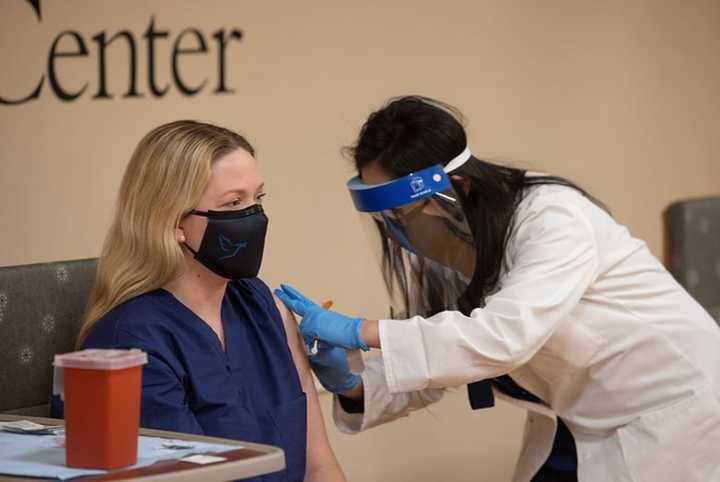Citing new data that showed Pfizer and Moderna vaccines’ effectiveness wanes over time, President Joe Biden’s administration announced that beginning the week of Monday, Sept. 20, booster shots would be made available for many Americans.
The Centers for Disease Control and Prevention (CDC) and US Food and Drug Administration (FDA) said that the Delta variant of the virus, in particular, is a threat and that they "are starting to see evidence of reduced protection against mild and moderate disease."
US Surgeon General Vivek Murthy said during a White House briefing on Wednesday, Aug. 18 that “having reviewed the most current data, it is now our clinical judgment that the time to lay out a plan for COVID-19 boosters is now.”
The guidance states that anyone who received Pfizer or Moderna vaccines should get the booster eight months after they received their second shot.
“There is a concern that the vaccine may start to wane in its effectiveness,” Francis Collins, the director of the National Institutes of Health previously said. “And delta is a nasty one for us to try to deal with.
“The combination of those two means we may need boosters, maybe beginning first with health care providers, as well as people in nursing homes, and then gradually moving forward.”
Like the initial rollout, health care workers, nursing home residents, and seniors will be first in line to become eligible to receive the booster shots.
"The Biden Administration's booster plan ensures that the people who were fully vaccinated earliest in the vaccine rollout will likely be eligible for a booster first. This includes the most vulnerable populations like health care providers, nursing home residents, and seniors," White House officials said.
They noted that for people who received the Johnson & Johnson vaccine, it is anticipated that vaccine boosters will likely be needed. The Johnson & Johnson vaccine was not administered in the US until March, and they said that they expect more data in the next few weeks and will keep the public informed.
“Based on our latest assessment, the current protection against severe disease, hospitalization, and death could diminish in the months ahead, especially among those who are at higher risk or were vaccinated during the earlier phases of the vaccination rollout," officials said.
"For that reason, we conclude that a booster shot will be needed to maximize vaccine-induced protection and prolong its durability."
Click here to follow Daily Voice Beekman-Poughquag and receive free news updates.
